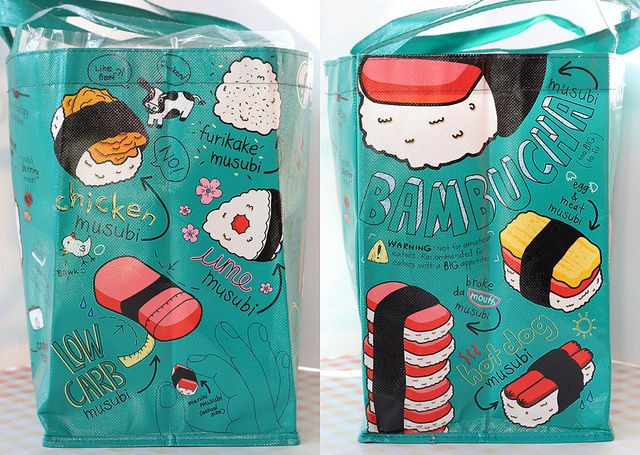Saving The Planet: People Who Use Reusable Bags Were More Likely To Buy Junk Food

Go to your nearest Trader Joe’s and see what people are putting their groceries into now. Those reusable bags that people increasingly use are good for the environment, but they may also increase the amount of junk food shoppers buy.
In a new study, researchers analyzed data from loyalty-card shoppers from about 140,000 trips to a grocery store in California in the mid-2000s. From the data they analyzed, they found that 13 percent were likely to buy organic products when they brought their own bags, but they were also seven percent more likely to buy junk food.
The researchers proposed two theories for why this happened. The first is that people who brought their own bag were already environmentally friendly, so it makes sense that they would choose more “organic” food that seemed healthier for them. The second theory is that the shoppers felt entitled to a bit of cheating after their efforts to be more environmental. This is what makes it more likely that the shopper would buy junk food.
“Grocery store shoppers who bring their own bags are more likely to purchase organic produce and other healthy food. But those same shoppers often feel virtuous, because they are acting in an environmentally responsible way. That feeling easily persuades them that, because they are being good to the environment, they should treat themselves to cookies or potato chips or some other product with lots of fat, salt, or sugar,” co-authors Uma R. Karmarkar, assistant professor of Business Administration from Harvard University and Bryan Bollinger, assistant professor of marketing from Duke University, wrote in a statement.
Participants were also randomly pooled and assigned one of two situations, to bring their own bag or to not bring their own bag. According to the situation, the participants were then given a scenario and a floor plan of the grocery store and were asked to give a list of 10 items they were most likely to buy during the trip.
Something about bringing the bag, the researchers found, did actually change behavior. There was a discernable difference in the ways that people with the reusable bag spent money. Parents seemed to be the only anomaly from the data in the group, either because they do not feel like bringing a reusable bag is all that virtuous or they are putting being environmentally friendly underneath their notion of parental duties. They were able to distinguish between parents and non-parents by looking at the loyalty card purchases and seeing which ones had purchases like baby food and diapers.
Of course, this is research that was done in one state in one grocery store, and so this can’t be used as the general rule. But it is interesting to note the ways in which this information can affect strategies by stores, especially as plastic bag bans rise. It may just mean an increase in junk food.
Source: Karmarkar U, Bollinger B. BYOB: How Bringing Your Own Shopping Bags Leads to Treating Yourself and the Environment. Journal of Marketing. 2015.
Published by Medicaldaily.com



























